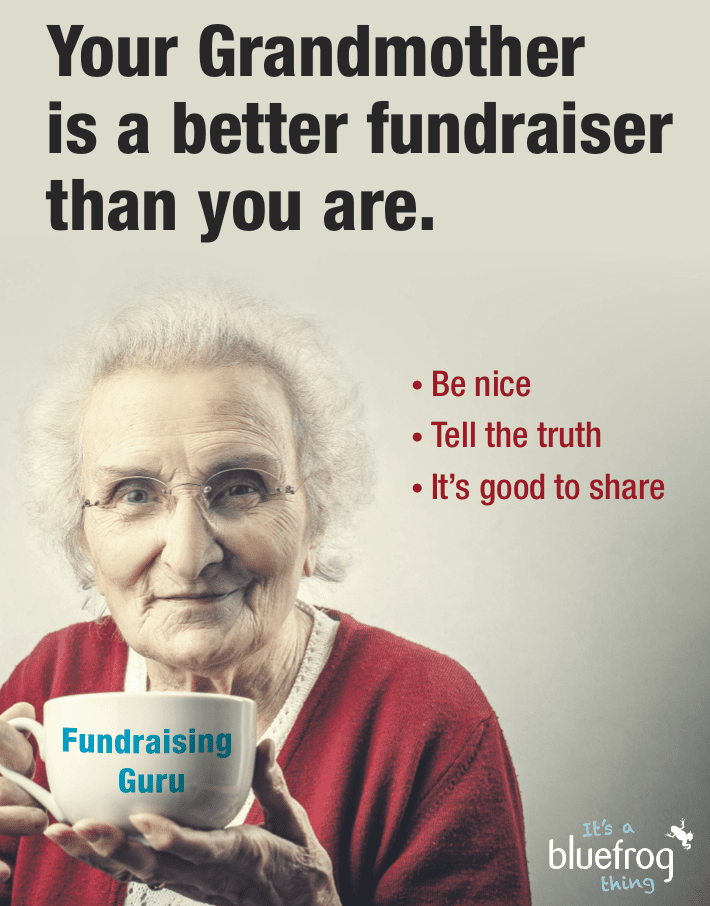Your grandmother is a better fundraiser than you are

Yes. That’s right. No matter how many years you’ve been working in fundraising, no matter how many books you’ve read or how many tests you’ve been involved in, your grandmother (or mum) is instinctively a better fundraiser than you.
She just knows that life is better for everyone if we all do three simple things.
1. Be nice
Be aware of other people’s feelings. Say thank you. Show that you’re grateful. Don’t keep asking for things.
I’m sure you’ve all heard those suggestions many times as you were growing up. But the fact is, they are also very important in building and maintaining relationships with donors.
We undertook a simple test for one of our clients recently where we assessed the impact of introducing a highly personalised thank you instead of sending a (good) computer generated letter.
The group that received the personalised thank you, gave 16% more over the subsequent 12 months than the control.
2. Tell the truth
Be honest about everything. Fundraising shouldn’t be about tricking donors into giving to you. If you only want a £3 gift, that’s great. If you want to call those donors up and ask them to give a direct debit, that’s fine too. But dropping people into a never ending upgrade programme based on the fact that they struggle to say no to multiple asks is questionable at best.
Yes, it may bring in more money in the short-term. But what impact will it have on how they feel about your charity and the sector as a whole?
And be very careful about value exchange devices. I mean the sort of promotion where you offer a booklet or something free if someone sends in a text or emails you. Particularly if, all along, you have the primary intention of getting their details just to ask them for a regular gift.
Be aware that some donors are starting to complain about these tactics. If the sector is still under scrutiny, I wouldn’t be surprised if this became a focus of press attention.
So, if you wouldn’t feel comfortable about justifying your strategy to a journalist, give very careful consideration before using this type of technique.
3. It’s good to share
People give to you because they want to solve a problem. They want to stop something bad from happening. They want to be part of a change in society. Remember this. Share successes with your donors like they are theirs - not yours. That’s how you build loyalty, reduce attrition and raise more funds.
And if you doubt me, why not ask your grandmother (or mum) what she thinks. She’s the only fundraising guru you’ll ever need.
If you'd like a copy of the image in a hi-res format for printing out, you can download a PDF by clicking here.
Tags In
The Essentials

Crack the Code to Regular Giving: Insights, Strategies, and a Special Giveaway!

‘Tis Halloween. Keep to the light and beware the Four Fundraisers of the Apocalypse!

Why do people give? The Donor Participation Project with Louis Diez.

A guide to fundraising on the back of a postcard

What does the latest research tell us about the state of fundraising?





